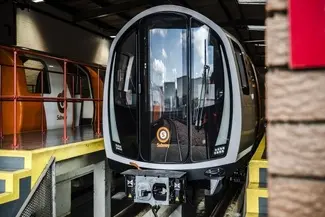IMO highlights the importance of ports for the maritime industry
Global trade by sea depends on the communication between ships, ports and everyone that is involved, from port operators, to regulators, to maritime security experts and innovators in technology. That was the message of a special event on ports, held at IMO Headquarters on June 11.

Global trade by sea depends on the communication between ships, ports and everyone that is involved, from port operators, to regulators, to maritime security experts and innovators in technology. That was the message of a special event on ports, held at IMO Headquarters on June 11.
Key issues that were discussed are:
- What is a “single window” and why do ports need one?
- What are the best practices when it comes to electronic business and port logistics?
- How is IMO supporting developing countries to get ready for the Facilitation Convention amendments which make electronic data exchange mandatory from 2019?
Namely, the event also covered the importance of port security, with the IMO Secretary-General Lim, saying that it was the maritime sector should play a significant role in creating the conditions necessary for increased employment, prosperity and stability.
Mr. Lim added that he intents to open the IMO up to stakeholders, who might not previously have been involved in the work of IMO, in order to deal with all maritime aspects in a holistic way.
A second event, which took place on 12-13 June, focused on port security. The Symposium on port security operations exchanged best practice on port security and law enforcement. An introductory session outlined resources, tools and capacity-building programmes and how ports can access them.
IMO, UNODC and Interpol are working together to fight illegal maritime activity. IMO Secretary-General Lim also called partner organizations to help Governments develop a national oversight capability for safety and security and promote the IMO International Ship and Port Facility Security (ISPS Code) and the ILO/IMO Code of Practice on security in ports.
Source: safety4sea















![AIRBUS A380 [MORE THAN 600 PASSENGER’S CAPACITY PLANE]](https://cdn.tinn.ir/thumbnail/4jCp4EQvCU0b/IjHVrSYQrIAqIzXuTzADR7qLYX4idQT4nfq__26E5SCUPLMqfhWkWajvuO9Wfq1ql1TjV4dhkrHliNQU82kMpo2NNftT_NGEwHc9KXtN_rk731bmifa2IQ,,/airbus-a380-structure1.jpg)

Send Comment